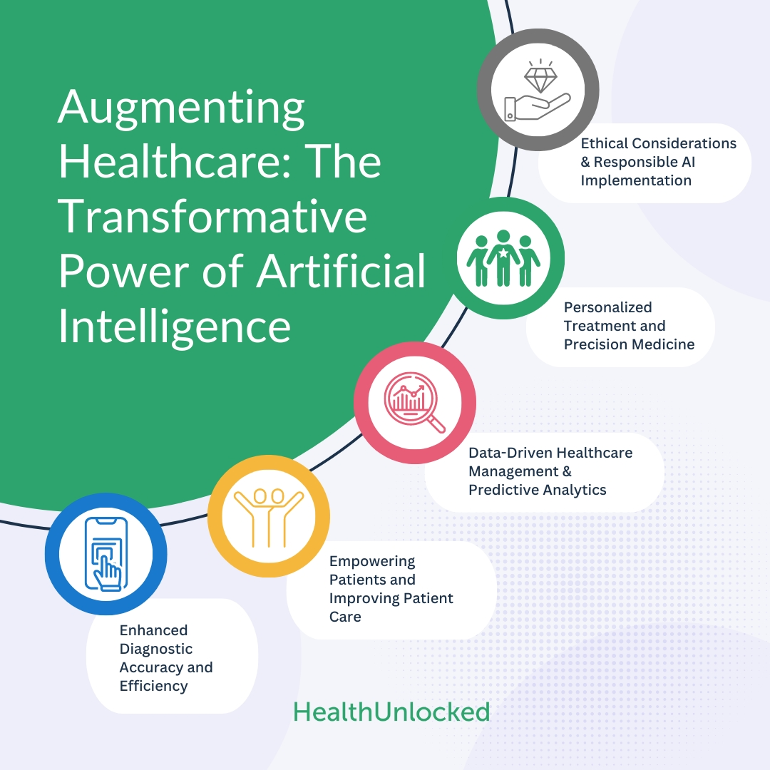In recent years, the marriage of artificial intelligence (AI) and healthcare has emerged as a game-changing alliance, revolutionizing the landscape of medical research, diagnosis, treatment, and patient care. The potential of AI to process vast amounts of data, extract meaningful insights, and assist healthcare professionals has led to groundbreaking advancements. In this thought leadership article, we explore the transformative power of AI in healthcare and its implications for the future.
Enhanced Diagnostic Accuracy and Efficiency:
AI algorithms have demonstrated remarkable capabilities in analyzing medical images, such as X-rays, MRIs, and CT scans. Machine learning algorithms can detect patterns and anomalies that might be missed by human eyes, leading to more accurate and timely diagnoses. AI-powered diagnostic tools have the potential to reduce diagnostic errors, improve efficiency, and enable early detection of diseases, ultimately saving lives and improving patient outcomes.
Personalized Treatment and Precision Medicine:
AI plays a pivotal role in advancing precision medicine by analyzing vast genomic datasets and identifying genetic variations associated with diseases. By combining genetic information with other patient data, AI algorithms can guide healthcare professionals in developing personalized treatment plans tailored to an individual's unique characteristics. AI-driven insights enable targeted therapies, optimize medication choices, and reduce the risk of adverse effects, revolutionizing the way diseases are treated.
Data-Driven Healthcare Management and Predictive Analytics:
The healthcare industry generates massive amounts of data, from electronic health records and wearable devices to clinical trials and research studies. AI algorithms can extract valuable insights from this data, providing healthcare professionals with actionable information for decision-making. Predictive analytics powered by AI can anticipate disease outbreaks, optimize hospital workflows, and identify populations at risk, facilitating proactive and efficient healthcare management.
Empowering Patients and Improving Patient Care:
AI-driven technologies have the potential to empower patients by providing personalized, accessible, and user-friendly tools. Chatbots and virtual assistants can offer patients round-the-clock support, answer queries, and provide guidance on managing their health conditions. Wearable devices and health-tracking apps powered by AI can monitor vital signs, detect early warning signs, and encourage healthy behaviors, enabling patients to actively participate in their own care.
Ethical Considerations and Responsible AI Implementation:
The integration of AI in healthcare brings forth ethical considerations that must be carefully addressed. Patient privacy, data security, transparency of algorithms, and bias in AI systems require attention to ensure ethical and responsible AI implementation. Collaboration between healthcare professionals, policymakers, technology developers, and ethicists is crucial to establish robust guidelines and frameworks that prioritize patient welfare and privacy in the era of AI.
Artificial intelligence is a transformative force that is reshaping the healthcare landscape, from diagnosis and treatment to patient care and management. By harnessing the power of AI, healthcare professionals can achieve higher accuracy, efficiency, and personalization in their practices, ultimately improving patient outcomes. However, ethical considerations and responsible implementation of AI in healthcare are paramount. As we embrace AI's potential, it is crucial to ensure transparency, privacy, and fairness to create a future where AI augments human expertise, compassion, and the pursuit of better healthcare for all.
